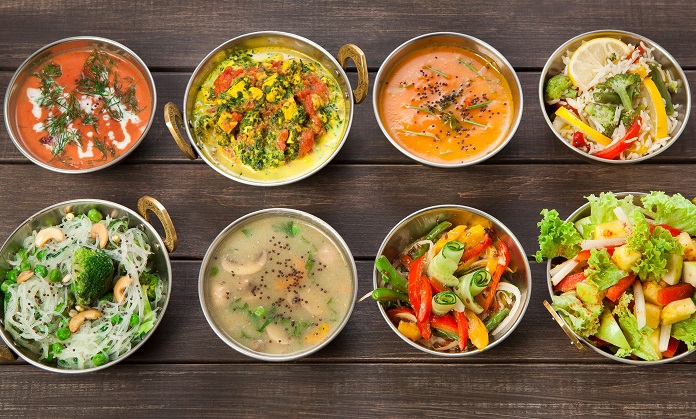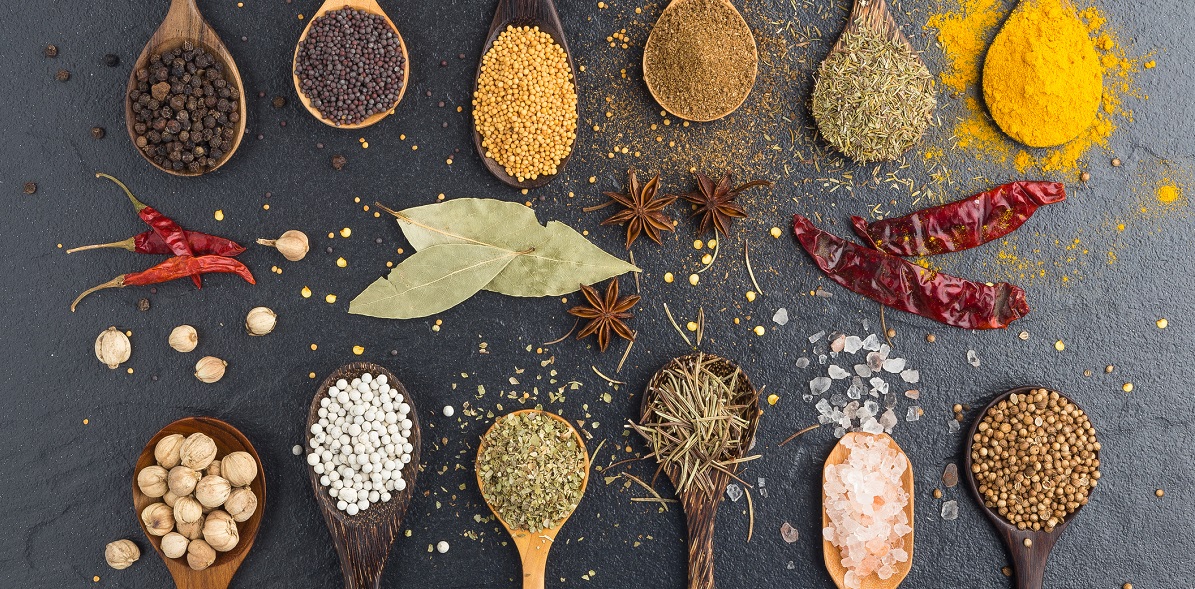What if there was a way of eating that could not only help you shed your winter weight, but also leave you feeling better? That’s the idea behind Ayurvedic cooking.
Ayurveda, an ancient healing system that developed some 5,000 years ago in India, translating from Sanskrit to mean “knowledge of life”. The eastern practice is deeply rooted in the belief that health and wellness depend on a fragile balance between the mind, body and spirit. If one takes a hit, the other two are thrown into chaos.
Celeb-favoured fads usually involve all manner of bonkers rituals. But there are plenty of intuitive Ayurveda-derived practices that you’ve probably already adopted without realising it – like breathing exercises, yoga and drinking herbal teas. Now the wellness set are looking at Ayurvedic cooking, which happily resonates with our obsession to maintain a certain degree of sanity in an ever chaotic and stressful world.
What is Ayurvedic cooking?
Ostensibly, the diet is tailored to your specific body type, or “dosha”. There are three in total. “Vata” are tall and slender with creative and excitable personalities, “pitta” are fair strong and study, while “kapha” are loving and gentle.
A mental disruption to the equilibrium can manifest in unpleasant physical symptoms. For example, if kapha is imbalanced, it can lead to skin breakouts and digestion problems. The idea is you keep the see-saw from swinging by eating foods that oppose your dominant dosha.

Jasmine Hemsley, one half of cheffing duo Hemsley + Hemsley, is a vocal champion of Ayurveda’s healing benefits. She wrote a cookbook on the method, East Meets West. The book is filled with adaptable recipes that can be tweaked to keep each dosha harmonious.
“It’s basically the food equivalent of, ‘if you’re feeling hot, take off your jumper, or if you’re feeling cold, put it back on,’” Jasmine says. She first stumbled across the method through her yoga practice. She says she soon began to notice how eating slowly and mindfully (which is a large part of Ayurvedic cooking) improved her digestion.
What other benefits can you expect?
“Better balance all round – mentally, spiritually, emotionally and physically,” Jasmine says. “Getting to understand yourself as a seasonal creature can help you to customise your diet for day-to-day balance.”
As well as helping keep the mind and body on good terms, converts claim the method can boost energy levels, improve mood, fight blemishes and even ward off winter flu.
Perhaps most encouragingly of all, it’s not a diet that will leave you utterly miserable. Warm and comforting recipes include Kitchari – a creamy rice of lentils – teff waffles with turmeric, honey and lamb hotpot with pink peppercorn. “Ayurvedic cooking doesn’t mean Indian food – it’s not as hot and spicy – it’s much more mellow,” says Jasmine. “It’s the opposite of deprivation and all about enjoying and savouring comforting food.”
While it’s not designed for weight loss (devotees will tell you it’s all about maintaining the balance of energy in your body) committing to eating healthy and balanced meals after a season of roast dinners and booze is sure to work in your favour.
Brands are starting to get the buzz too
London-based drinks company Botanic Lab deal in Ayurvedic alchemy. They create cold pressed juices and tonics with ashwagandha and turmeric, which are two adaptogenic herbs at the core of the diet’s stress-busting philosophy.
Organic beauty brand Urban Veda have also tailored a range of face oils to match your dosha. They’ll help you fill out a personality profile before nailing the perfect person-to-potion combo.
Urban Veda Soothing Facial Oil for Pitta Dosha, Amazon.
“With more and more people waking up to the fact that mind and body are inextricably connected, Ayurveda feels like a good fit for people seeking ways to manage modern living and its associated stresses,” says Botanic Lab creator Rebekah Hall.
“From a dietary perspective, we’re more aware than ever that highly processed foods are having an adverse impact on wellbeing. Diets containing whole foods and plant ingredients are beneficial.”
You may also be interested in…
This article may include affiliate links to products and services where we may receive a small fee to support the running of this site if you make a purchase or is a sponsored article from one of our select editorial partners providing valuable advice and information to our readers.







































































